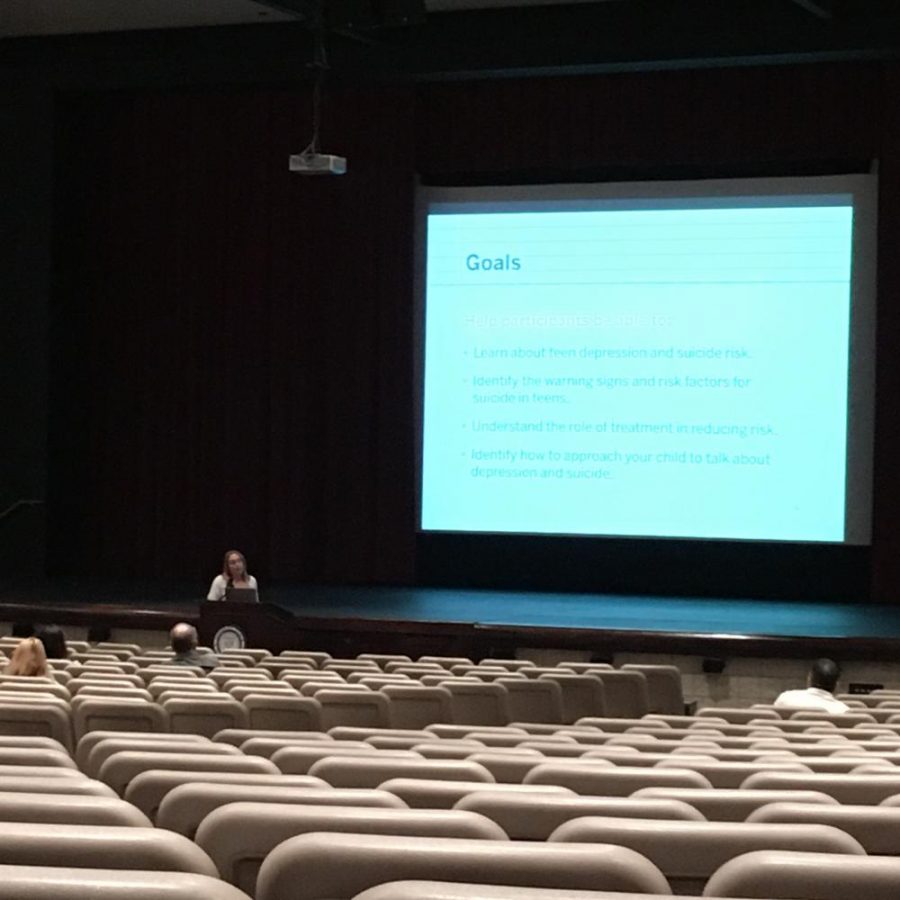Suicide Prevention: A Must
October 16, 2017
For the first time in Upper St. Clair history, the High School and Fort Couch Middle School Guidance Departments hosted a Suicide Prevention Meeting, presented by the American Foundation for Suicide Prevention (AFSP), in the High School Theatre on Tuesday, September 26th. This event was designed to teach parents about suicide and how to identify signs of depression or suicidal thoughts in his or her own child. Additionally, the presentation gave a further look into suicide warning signs, what risk factors or characteristics increase the likelihood of someone taking his/her own life and actions that may be taken to save a life.
Although people hear the word “suicide” in the media and think little of it, some might not have a clear understanding of the impact suicide has on his/her families. Whether we know it or not, suicide is the tenth leading cause of death in the United States. 44,193 reported deaths occurred last year, and 5,900 of those were reported suicides between 10-24-year-olds. Nine out of ten people who have attempted suicide have a diagnosable mental health condition, although other health issues and environmental factors may contribute.
Ms. Jennifer Sikorn, one of the directors of the AFSP, presented and led the discussion that followed. Her goal for the evening was to address the issues of suicide and to ultimately “break down the stigma of mental health.”
“If [someone] is struggling with depression or anxiety, it’s because something’s going on in their brain, which is a physical organ in the body. Maybe [a person] is not struggling with depression today, but four years from now, they will be. There are three categories to look for: how a person is talking, how they are behaving, and how they feel; what his or her mood is like.”
Suicide is the most common mental health problem in young people. If a mental health problem is left untreated, then suicide could occur. Treatment is crucial to one’s survival and mental stability, and Ms. Sikorn’s data shows, “Treatment is effective in eight out of ten people.” If someone initially denies treatment, continue to encourage him or her to seek treatment. Situations always change, so the slightest suggestion might set an individual on the right path.
Even though the event was directed toward parents, the guidance counselors from the Upper St. Clair Schools were also in attendance, learning from Ms. Sirkorn’s information and advice. This past summer, Ms. Madia, a guidance counselor at Fort Couch Middle School, and other faculty members at Fort Couch developed a new bullying prevention system called Fort FAMILY. This new program is intended to be a more effective replacement for the current Olweus Bullying Prevention Program. Suicide prevention is one of the topics she intends to address with her students in guidance class.
“What we’re focusing on is connectedness and keeping students connected to the school and to their teachers and to adults. And what we know is that when students have trusted adults in their life they may be more willing to share some of these feelings with these people and maybe seek help more readily.”
Unfortunately, in a high school of a thousand students, only one in three students with a mental illness will receive treatment. The other two will go undiagnosed. If you know a student, friend, or family member suffering from mental problems, or who is displaying signs of depression or suicide, encourage them to talk to a trusted adult or counselor. If needed, please call the Suicide Prevention Hotline at 1-800-273-8255, or text TALK to 741741.
